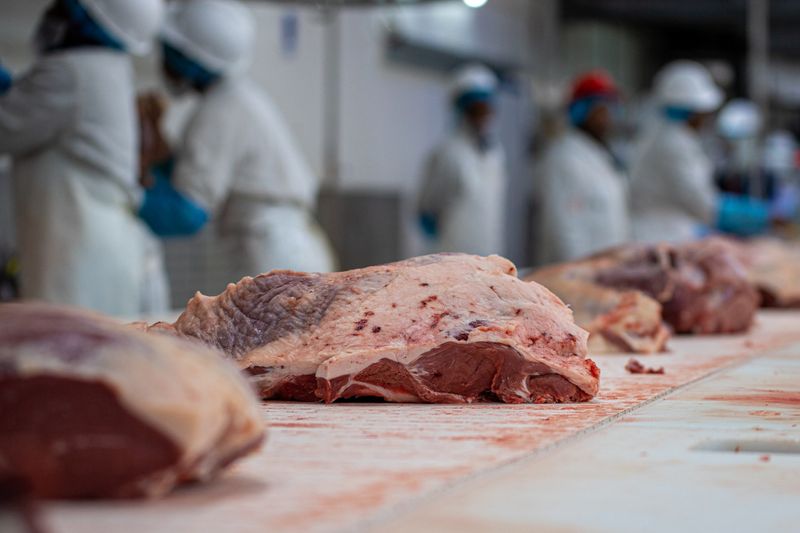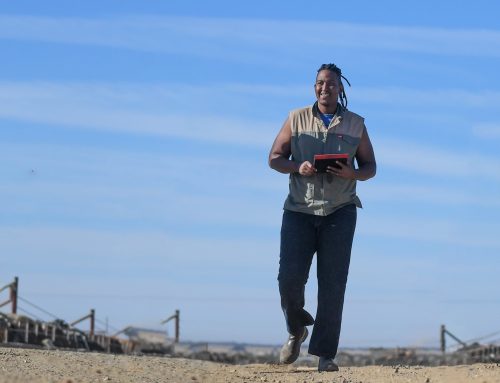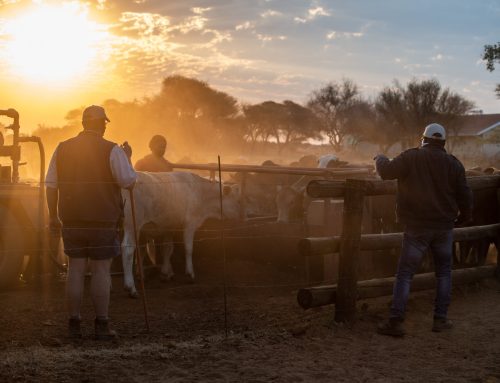Earlier today the government announced the lifting of the 21-day ban on the movement of livestock, with revised restrictions imposed to curb the spread of Foot-and-Mouth Disease (FMD).
“We are very happy that the government has introduced FMD ‘hot-zones’, by establishing Disease Management Areas, which allow for more effective control of FMD,” says Roelie van Reenen, supply chain executive at Beefmaster Group, a leading specialist supplier of beef products to local and international markets. The Group has been calling for more control in FMD hot-zone areas.
Disease Management Areas have been declared in sections of Kwa-Zulu Natal, the Free State as well as Limpopo, with government providing clear maps as to the affected areas.
“We also welcome the stricter measures pertaining to the movement of animals meant for direct slaughter, and that red cross permits will only be issued for transportation if certain conditions are met,” says van Reenen.
Beefmaster Group has, since the onset of the outbreak in 2019, insisted on veterinary inspections and sign-off when procuring cattle as well as for all its suppliers to meet strict criteria and adhere to stringent biosecurity measures.
Restrictions have also been placed on the movement of animals, animal products and genetic material (animals not meant for direct slaughter by an abattoir), such as that the owner must have a declaration attesting to the origin and health of the animal, as well as that the buyer must agree to an isolation period of 28 days at destination following transportation.
However, he adds that a welcome addition to this would have been private vet sign-off prior to the movement of animals, as well as the issuing of red cross permits signaling permission of movement.
“Animals that are transported to abattoirs will not be introduced to the national herd given that they are intended to be slaughtered, but cattle that are transported from one area to the next for other purposes, pose a significant threat to the national herd in being moved around without stricter measures,” says van Reenen.
He adds that the legislation’s impact on the rest of the red meat supply chain outside of beef processors and abattoirs, is somewhat vague.
On how today’s news will impact exports and consumers, he says that getting FMD under control is paramount for a robust beef export market, as well as guaranteeing an uninterrupted beef supply to consumers.
Many of the country’s export markets are still open for beef trade due to the bilateral trade agreements in place between South Africa and international territories.
“Because South Africa lost its FMD-free status with the World Organisation for Animal Health (WOAH), there has been lost opportunity: We can not regain lost markets, or open new ones. We need to regain our FMD-free status to open up new markets. One way we can do this is to vaccinate the whole herd, and gain ‘FMD-free with vaccination’ status, as per the WOAH.”
He also says that ensuring the continuity of beef supply to the country is Beefmaster Group’s top priority.
“During the 21 day-ban there were unofficial reports of the illegal movement of animals. We therefore urge industry to cooperate and report illegal movement of animals that do not comply with legislation. We are in support of eradicating this virus completely,” concludes van Reenen.






